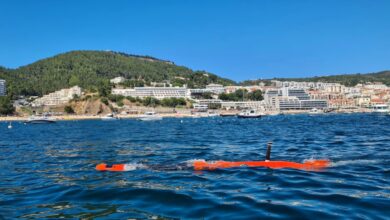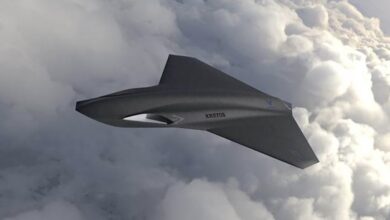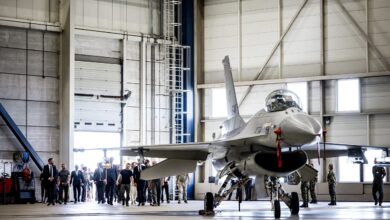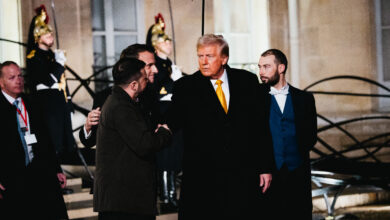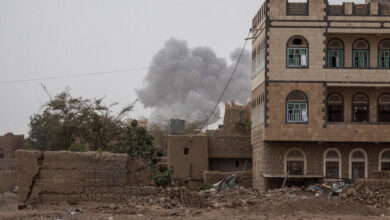
As the world is fixated on Vladimir Putin ordering the Russian military to enter two breakaway regions of Ukraine in a likely prelude to war, there is talk of another conflict erupting in a country bordering the European Union and two NATO states.
That country is Bosnia and Herzegovina.
Renewed threats to the stability of Bosnia and Herzegovina are raising alarm bells among many in the region. After all, the memory of the 1992–95 war and genocide of Bosniak Muslims still lingers and makes its citizens edgy.
There is widespread consensus that the country is currently facing its biggest post-war security crisis.
Independent Republic of Srpska
If one person is responsible for the current state of affairs, it is Milorad Dodik.
The firebrand politician, who also serves as the Serb member of the country’s tripartite presidency, has made it more than clear that he aims to achieve what Radovan Karadžić and Ratko Mladić failed to accomplish during the 1990s: an independent Republic of Srpska that would join neighboring Serbia.
The Serb majority part comprises 49 percent of Bosnia’s territory. Bosniak Muslims, who were forcefully expelled from the Republic of Srpska during the war, clearly oppose such a move and advocate preserving the current state, despite it being inefficient, corrupt, and functionally flawed.
More rigid suggestions from the Bosniak Muslim side call for the abolition of the Republic of Srpska.
To make matters worse, within the other 51 percent of the country known as the Federation, Bosniaks and Croats are at loggerheads over how to carry out reforms of the electoral system designed to shore up the country’s democracy.
Invisible demarcation lines between ethnic groups are very much present in the mental geography of many and continue to impact daily lives.
‘Serb World’
Regional states with irredentist aspirations significantly add to the existing complexity. For example, Dodik’s destabilizing moves are underpinned by Belgrade and its official concept of the “Serb world” — a copy-paste of the Russkiy Mir or “Russian World” idea coined by Kremlin’s ideologues.
President Putin even justified Crimea’s annexation by evoking the concept of Russkiy Mir and spoke of Russians as living in a “divided nation.”

Similarly, Serbian President Aleksandar Vučić and Bosnian Serb strongman Dodik spoke of Serbs scattered throughout the Western Balkans.
Croatia, for its part, has never given up on meddling inside Bosnia’s internal affairs either and has seen a spike in its WWII fascist-era territorial aspirations.
Russian Disinformation
Russia sees Dodik as a low-cost means in sowing discord in yet another NATO-aspiring Balkan country. It has recently been upping the ante through its Balkan media outlets, such as Sputnik Srbija and Russia Beyond the Headlines, available in local languages.
Some of the most frequent topics of disinformation include demonizing the US and NATO, presenting the EU as weak and divided, amplifying threat perceptions in the region, advertising Russian military might, and constructing the myth of Bosnia being a safe-haven for “Islamic jihadists.”
Over the past weeks, these same media outlets have been constructing a narrative that is stridently antagonistic towards Western support for Ukraine. In a recent article in the Serbian language, they claimed that Washington was arming “neo-Nazis in Ukraine and giving carte blanche to provoke Donbass.”
Offered free of charge, these Kremlin statements disguised as news pieces are disseminated by financially-dry Balkan media outlets and public broadcasters.
Moscow as Ally
As a result of such Kremlin-backed propaganda, many in the region see Russia as being a major ally — this is particularly true in Serbia.
Interestingly enough, EU and NATO member state Croatia has likewise grown so close to Moscow that Croatian Prime Minister Andrej Plenković invited Putin for an official visit to Zagreb, at the height of Russia’s standoff with Ukraine.
Furthermore, Croatian President Zoran Milanović publicly stated that Ukraine has no place in NATO and called for pulling Croatian soldiers out of Ukraine in case of an escalation with Russia.
Such a move shocked many in the European Union and NATO and exposed the deep wedges and divides within the transatlantic alliance.
Russia’s Objective in the Balkans
Russia’s strategic objective in the Western Balkans is to block aspiring nations from joining NATO or transform them into “bad boys” that would act as fifth columns and essentially bring decision making by consensus to a halt by dissenting.
Pro-Russian NATO members in the region already include Hungary and Croatia, with Montenegro having strong Moscow-leaning currents.
Russian intelligence operatives have been implicated in the botched 2016 coup d’etat attempt in Montenegro, in destabilizing Macedonia in 2017, and in training Bosnian Serb paramilitaries in 2018.
In March 2021, Russia warned it would react if Bosnia takes steps towards joining NATO because Moscow would perceive this as a hostile act, the Russian embassy stated.
Wake-up Call
As Russia expert Keir Giles recently noted, President Putin clearly thinks he is confronting the West in Ukraine because his demands are clearly aimed at NATO and the United States, not Ukraine itself.
This means that any Russian action intended to step up the pressure may be directed elsewhere, most likely at non-NATO European states.
East European countries – Belarus, Ukraine, and Moldova – which have remained outside of NATO are now all partly occupied by Russia, while those that did join NATO are independent and safe from Moscow’s territorial predations.
Should Moscow proceed to turn the Serb entity into yet another Abkhazia, one that will border two NATO member states (Croatia and Montenegro), it would pose a security challenge to the Western military alliance far more serious than anything seen on its eastern flank.
The situation in Ukraine should be a wake-up call for the United States to increase its military presence in Bosnia and Herzegovina before it’s too late. Vladimir Putin will not stop at the Dnieper.
 Harun Karčić (@HarunKarcic) is a journalist and political analyst based in Sarajevo covering foreign influences in the Balkan region.
Harun Karčić (@HarunKarcic) is a journalist and political analyst based in Sarajevo covering foreign influences in the Balkan region.
The views and opinions expressed here are those of the author and do not necessarily reflect the editorial position of The Defense Post.
The Defense Post aims to publish a wide range of high-quality opinion and analysis from a diverse array of people – do you want to send us yours? Click here to submit an op-ed.



